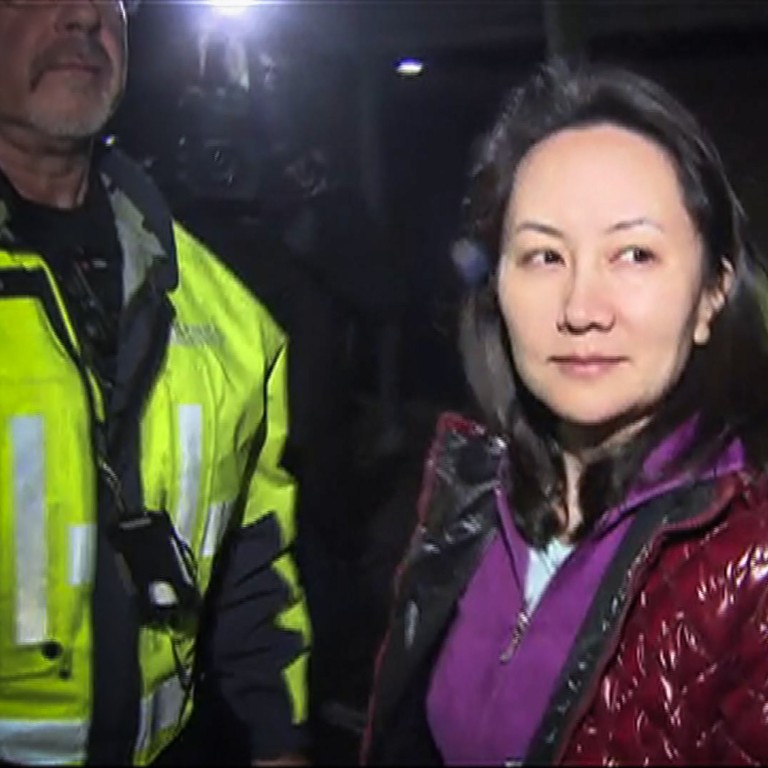Huawei’s recent trials and tribulations in the West and the retaliatory actions of
China against
Canada have shocked many people. It is natural to assume that the detentions and restrictions on Huawei’s use in core
infrastructure are due to the rupture in US-China
trade relations. However, these actions can best be understood through the prism of two clashing meta-trends: hi-
tech’s strategic importance across the realms of
defence, commerce and social organisation under the leadership of the
United States, and China’s emergence as a rising
military power under the auspices of the
Communist Party. Technology and telecommunications have important characteristics which render them highly strategic, as compared to traditional industries such as steel, manufacturing or petrochemicals. While these basic industries have historically been fundamental to a nation’s economic development and military might, their strategic importance has diminished as their supply chains have become easily replaceable.
A steel company can select from a range of coal and iron suppliers producing more or less the same commodity globally. The same can be said for an automobile company that needs to source steel. Cutting-edge technology products, on the other hand, rely on a highly specialised group of suppliers which design customised products and services.
In addition to having vulnerable supply chains, technology and telecommunications systems bear a higher cost from any sort of disruption as they are typically linked in a network, such that a problem occurring in one part of the chain jeopardises the entire network.
Meanwhile, governments, militaries,
companies and individuals are increasingly reliant on technology, which is embedded into every facet of our work and lives. The rise of
social media, cyber hacking,
artificial intelligence and big data, and the roll-out of the
internet of things with
5G all demonstrate the critical nature of our technology and telecoms systems.
Thanks to its world-class
research institutes and vibrant
start-up ecosystem, the US has fostered virtually every domain of technology, including semi-conductors, supercomputers, enterprise software and advanced telecommunications. The US has also spearheaded the setting of standards governing connectivity between technological layers and devices – including the internet itself – for commercial and other uses. The ability to set protocols means commercial benefits for those companies that are early to adopt and promote the technology, often on a licensing basis. Equally important, and pertinent to geopolitics, the US plays a key role in limiting access to key technologies by regimes not in favour, through various sanctions and export-control regimes.
Since the founding of the People’s Republic of China, the Chinese government has struggled to reconcile its competing aims of absolute sovereignty through national self-sufficiency and economic progress through engagement with the outside world. Nowhere has this contradiction been more evident than in the world of technology, as Chinese leaders have pushed to develop “indigenous” technology and “national champions”, while also seeking to import and absorb technological know-how from the West.
The Soviet Union was China’s chief provider of technology in the early days of the PRC, often building and operating facilities on behalf of the Chinese. Following its soured relationship with the Soviet Union and its later decision to open up and reform in 1978, China turned to the West to modernise but remained wary of the inherent risks involved with the introduction of Western technology.
So, while China allowed
Cisco,
Intel and
Microsoft to establish operations in China in the 1990s, they were also forced to create the next generation of competitors through the establishment of joint-ventures and R&D centres. Meanwhile, China pushed to have its own standards of technology protocols, including Wapi, a home-grown encryption standard for wireless local area network (WLAN) devices, to wrest control from the US.
And, despite the implicit guarantees following its accession to the World Trade Organisation, China has been able to limit the role of Western internet and media firms such as
Facebook,
Google and
Twitter to provide space for their Chinese equivalents and achieve dominant scale domestically.
China has successfully grown a very advanced domestic technology sector which can challenge the West head-on in virtually every domain. Similarly, the
Chinese military has also grown into a formidable global power in air, land, sea and cyberspace. In addition to dissatisfaction over bilateral trade, the US is responding to China’s challenges to its supremacy over international affairs. China seeks to do business in
Iran, which is sanctioned by the US. Just recently, the Chinese handset and equipment manufacturer
ZTE faced bankruptcy due to the US’ Iran sanctions, which would prevent sales by US suppliers of cutting-edge software and micro-chip components.
More than any other company, Huawei embodies China’s aspirational rise to modern power. With
US $100 billion in annual revenue and steadfast support from the government, Huawei has the scale and ability to take market share from its Western telecommunication equipment peers such as
Nokia. As Huawei must comply with China’s national security laws and its founder, Ren Zhengfei, has close connections to the People’s Liberation Army, the company may be viewed as a threat to Western strategic interests.


